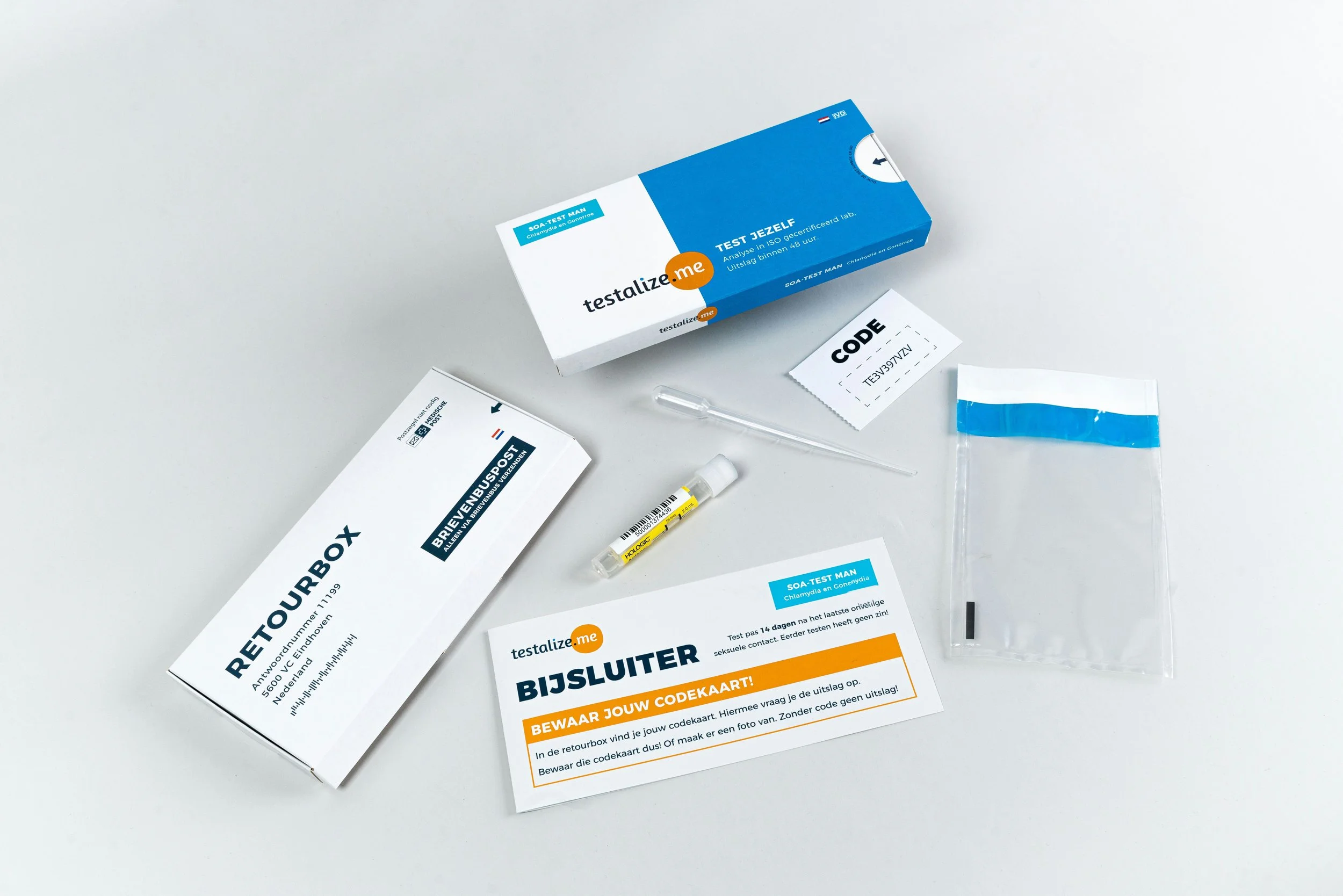EYNTK about syphilis
With cases of syphilis on the rise in the UK, Lucy Sarret breaks down everything you need to know about the STI
Credit: Pexels
If you think syphilis is a relic of history, think again. This STI is making an unsettling comeback, with cases rising dramatically in recent years.
Despite advances in sexual health education and treatment, syphilis remains a pressing public health issue, particularly in the UK, where it disproportionately affects certain demographics.
In honour of STI Awareness Day, we’re breaking down everything you need to know about syphilis –how it spreads, how to protect yourself, and why awareness is more crucial than ever.
What is syphilis, and how do you get it?
Syphilis is a bacterial STI caused by Treponema pallidum. It spreads through direct contact with a syphilitic sore, which can appear on the genitals, anus, rectum, lips, or mouth. And no, you won’t catch it from a toilet seat or a casual hug –this one needs intimate skin-to-skin contact during sex (vaginal, anal, or oral) or even through kissing if there are sores in the mouth.
It’s often called the “great imitator”, because its symptoms can look like those of other conditions, making it tricky to diagnose without testing.
“According to the latest data, first diagnoses of infectious syphilis surged to 9,513 in 2023 —a 9.4% increase from 2022.”
The current state of syphilis in the UK
The UK is currently grappling with a syphilis epidemic. According to the latest data, first diagnoses of infectious syphilis surged to 9,513 in 2023 —a 9.4% increase from 2022. This alarming rise comes alongside 3,075 new diagnoses of other acquired syphilis, including late latent infections and complications such as neurosyphilis or cardiovascular syphilis.
Who is most affected by syphilis?
Syphilis remains most prevalent among gay, bisexual, and other men who have sex with men (GBMSM). However, recent data highlights a concerning rise among heterosexual people. Between 2022 and 2023, diagnoses increased by:
29% among women who have sex with men (WSM), rising from 641 to 825 cases.
17% among men who have sex with women (MSW), increasing from 967 to 1,133 cases.
Why is there a rise of syphilis in the UK?
The rise in syphilis diagnoses is likely linked to increased testing. In 2023, over 1.58 million syphilis tests were conducted in sexual health services –an 11% increase from 2022 and even higher than pre-pandemic levels. While more testing is undoubtedly a good thing, the data also points to real increases in infection rates, especially among certain groups.
Read more: Can tech really de-stigmatise STIs? The founders of Zults think so
Why is syphilis a concern for everyone?
While GBMSM accounts for the majority of syphilis cases, the sharp rise among heterosexual people and women is a reminder that syphilis (as with any STI) doesn’t discriminate. It’s particularly concerning for pregnant women, as syphilis can be passed to the baby during pregnancy, potentially causing severe complications.
The number of women who screened positive for syphilis during antenatal care has risen significantly, from 1.39 per 1,000 women tested in 2017-2018, to 1.64 per 1,000 in 2021-2022. These numbers highlight the importance of routine antenatal screening and timely treatment.
Credit: Unsplash
How syphilis spreads and why it’s tricky
Syphilis is primarily spread through sexual contact, including oral, vaginal, and anal sex. It can also be passed from mother to baby during pregnancy. The infection progresses through stages, from mild symptoms like sores and rashes to severe complications if left untreated.
The tricky part? Syphilis can be asymptomatic for years, allowing it to spread unnoticed. Late stages can lead to serious health issues, including damage to the heart, brain, and other organs.
While it might not have the same headlines as chlamydia or gonorrhea, syphilis is making a quiet comeback, and STI Awareness Day is the perfect time to spotlight it. Whether you’re curious, concerned, or just here for the tea, we’ve got you covered.
How do I know if I have syphilis?
Syphilis plays the long game, showing up in stages, each with its own symptoms.
Primary Stage: This is when the first sore, called a chancre, appears. It’s usually painless, making it easy to miss, especially if it’s hidden in places like the vagina or rectum.
Secondary Stage: If untreated, syphilis steps up its game with symptoms like a rash (often on the palms and soles), fever, fatigue, and swollen lymph nodes. These signs might come and go, leaving you thinking it’s no big deal.
Latent Stage: Here’s the stealthy part –syphilis can go quiet for years, showing no symptoms but still living in your body.
Tertiary Stage: If syphilis sticks around untreated, it can mess with your brain, heart, and other organs, leading to serious, even life-threatening issues.
How serious is syphilis?
Left untreated, syphilis can cause long-term complications. In its later stages, it can damage your nervous system, brain, heart, and other organs. Congenital syphilis –when a pregnant person passes it to their baby –can lead to stillbirth, developmental issues, or severe health problems for the newborn.
But here’s the good news: syphilis is entirely treatable when caught early.
How can I get tested for syphilis?
If you’re sexually active, especially with new or multiple partners, regular STI testing is a must –and that includes syphilis. A simple blood test or a swab from a sore is all it takes to check for the infection.
You can get tested at sexual health clinics, GP surgeries, or even order home testing kits in some areas. It’s discreet, quick, and so worth it.
What’s the treatment for syphilis?
Syphilis is treated with antibiotics, usually penicillin injections. If you’re allergic to penicillin, there are alternative treatments, so don’t panic. It’s crucial to complete the entire course of medication and follow up with your doctor to ensure the infection is gone.
Can syphilis come back after treatment?
Once treated, syphilis doesn’t come back on its own, but you can get reinfected if you’re exposed again. That’s why safer sex practices, like using condoms and dental dams, are your best friends.
How can I protect myself against syphilis?
Prevention is all about awareness and protection:
Condoms and dental dams: These don’t just protect against syphilis –they’re a shield against other STIs, too.
Communication: Talk openly with your partners about STI testing and sexual health. It’s sexy to be safe.
Regular testing: If you’re sexually active, especially with multiple partners, STI tests should be part of your routine.
Why we need to talk about syphilis
Syphilis is more common than you think, and ignoring it won’t make it go away. Talking openly about STIs helps reduce stigma, encourages testing, and ensures everyone gets the care they need.
Remember: getting tested is an act of self-love and respect for your partners.
So, if it’s been a minute since your last test, or you’re noticing something that doesn’t feel right, book that appointment. Knowledge is power –and in this case, it’s also protection.



